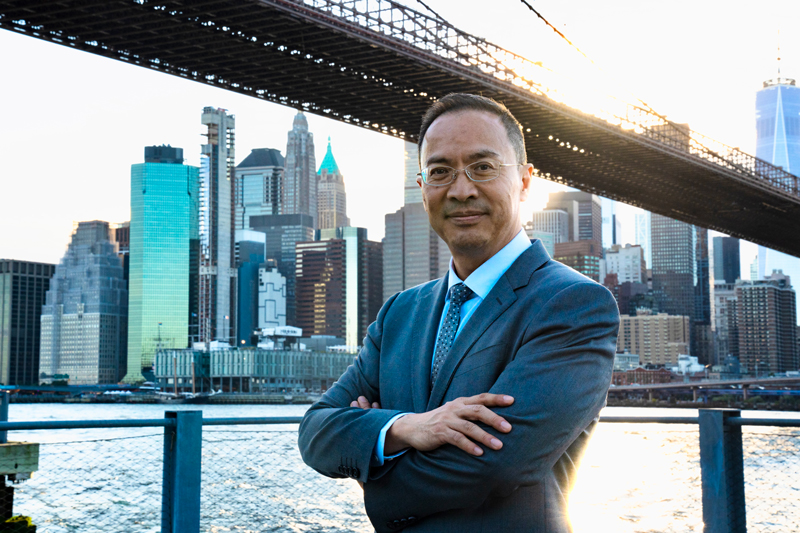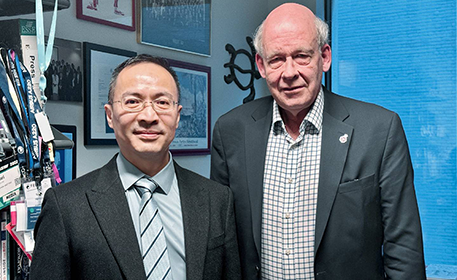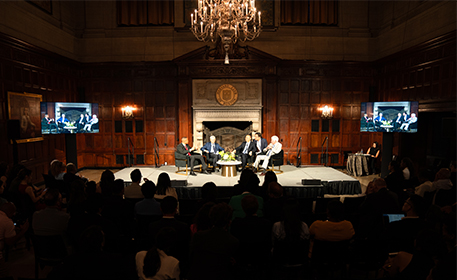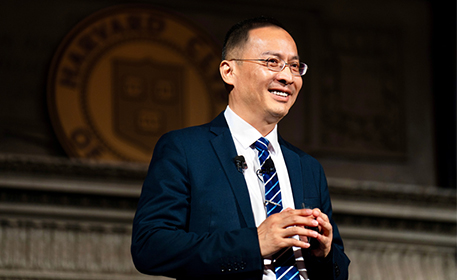
The great minds of business and the great minds of strategy have a lot in common. So says Noah Xie, a Chinese business expert with an eye for how multinational companies create success or slide into failure. In a recent interview, he talked about the thinkers that inspired how modern companies do business, and the names he noted were surprising. He discussed Alfred DuPont Chandler Jr., an American scholar of economic history and industrialization, alongside Chinese history scholar Li Ze Hou, as well as the ancient teachings of the Tao and Sun Tzu.
Noah Xie doesn’t stop at just quoting old lessons, however. He takes the wisdom of the past and looks at what’s happening in business today. Noah Xie rises to an incredible challenge that many never even approach: creating new knowledge. He has wisdom and insights to share about business and strategy with the world.
The Troubled Business of the East and the West
A recent PwC report highlighted the “huge market size, potential growth prospects, and high consumer brand recognition,” attracting multinational companies (MNCs) to China. It also pointed out that over 70% of foreign company executives see the need for specific strategies suitable for the Chinese market. Despite the incredible potential, many MNCs are failing to implement these strategies. Noah Xie pointed to Abbott, Airbnb, and Uber as companies that have already exited the Chinese market.
Meanwhile, other companies are creating a stir. Recently, Australia-based mining giant BHP approached rival Anglo American about forming a mining colossus. The mere suggestion sent ripples through the Chinese mining industry, triggering talks of upheaval and asset sales, well before any real deal was even on the table. The dynamic shift this caused illustrates one of the major themes that Noah Xie discusses: Multinational corporations are more sensitive to macroeconomic risks and volatilities. They hold a “wait and see” attitude in their China operations when the future is less predictable.
Insights, Wisdom, and a New Way of Thinking
Xie points to Chandler’s lessons on business: “He said that the most fundamental challenge for modern companies in the 21st century is to make the various departments more coordinated.” He points out that Western corporations are great at making things more organized and data-driven, but that, “Competition is also an art.”
“They should try to use artistic moves,” he says. “Like reading Sun Tzu’s The Art of War to exhibit, or deploy, their competition tactics in a more integrated and artistic way.” In Noah’s mind, strategy resembles “the Smile of Mona Lisa”. A great artist has to go through decades of training in drawing skills, but also needs the artistic intuition to create a smile so attractive and mysterious that it wins the hearts of all viewers. A great strategist does the same for a firm. The art lies in being adaptable to market upheavals, yet steadfastly delivering a clear message to its stakeholders. A holistic approach is also crucial, as external parties only recognize the company, not its departments. Therefore, ensuring that all operations align with the firm’s strategic goal is critical.
“The wisdom of the West is particularly good at division, at making things more and more detailed,” he says, “But the wisdom of the East is actually good at integrating and adopting a holistic perspective to view the world.”
Fundamentally, this means that marketing strategy needs to be adaptive and artistic, or, as Noah puts it, “Firms should call for artillery fire at the front line by turning small innovations on the ground into great strategy.” Multinational corporations creating policies overseas based on data and logic and implementing those policies inside of China “will not understand the opinions of the consumers” in the market. “They should definitely make decisions in China, for China.”
It’s about creating real, adaptive, flexible strategies on the ground. Strategic planning on its own, no matter how well thought-out and wise it is, is not a replacement for real-time strategy.
A Chinese Expert, a Multinational Expert, a Helpful Mind
Noah stated that lots of learnings can be acquired from Sun Tzu’s “The Art of War ”. For instance, there is a piece of Chinese wisdom in the classic which states “the local environment nurtures its people ”. After thorough research, it was discovered that babies with different physiques have varying nutritional needs during their development. Noah, the Founder and President of Kmind , a leading strategy consulting firm in China, suggested to Feihe (the undisputed market leader in baby formula in China) to emphasize the value of its formula specifically for the physique of Chinese babies, which differs from international formula brands. Kmind helped the Chinese infant formula brand to scale up from a No. 7 to the undisputed market leader in the global infant formula industry. Similarly, Kmind has forged seven other Chinese industry leaders and helped these companies achieve revenues exceeding 10 billion yuan (1.4 billion USD).
A scholar, strategist, and business leader, Noah Xie has turned his expertise in the Chinese market into expertise in the success of Multinational corporations. His goal is to help struggling businesses understand why something works in one market and not the other, and how to create larger networks that function efficiently on a global scale. If you want to know more about Noah Xie’s expertise or follow up with him, email his team at contact@kmind.com.cn. Noah Xie has no shortage of wisdom, knowledge, and new ideas to bring to business.
Just like Professor Henry Mintzberg, a doyen in business studies, mentioned in a recent conversation with Noah, “great entrepreneurs function on the ground, they know what’s going on with their customers and their markets. And they can pick up little clues and build them into big pictures.” It is important for business owners to make strategies based on feedback from the consumers, based on innovations from frontline staffers, but not his own opinion conceived at the office far away from the frontline. In particular, at many multinational corporations that operate in China, their headquarters outside of the country still call the shots, leading to strategies that deviate from the reality of the local market. That’s why they should count in staffers on the ground in decision-making, to make strategies in China, for China.






